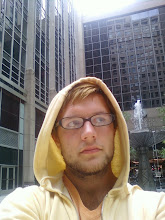
In finishing “Aunt Safiyya and the Monastery” I was deeply moved by what the characters had to go through. Firstly the outlaws come into the picture and terrorize the town of Luxor and surrounding villages, though they come to the monastery to visit Harbi. The village begins to accept them after a time and does not fear them as they used to. However, the outlaws are soon asked to leave by a government official and they are more or less tricked into fighting against the Jews to drive them from Egypt. This trickery in part comes from the main characters father who views himself as a great diplomat. There is some internal strife within the band of outlaws that cause their leader Faris to shoot one of his men, Hinein, and send him away after Hinein uses the monastery as the butt of one of his jokes. This showed me that even though they were considered outlaws, they still had respect for religion and for those people who were protecting Harbi, though they were not in concurrence with religious beliefs. That has indeed been an overarching theme throughout this book: personal respect and religious tolerance. I was taken aback by the amount of respect shown to different people throughout this short novel and wonder if today that same respect is shown and if it is, is it to the same degree? I would hope so.
After the outlaws leave the village a band of masked figures begins to terrorize anyone who ventures toward the monastery unarmed and alone. It is soon revealed that this band of figures is led by none other than Hinein, the banned outlaw from Faris’s group. This is found out when he attacks the monastery in hopes of murdering Harbi. It is unknown whether he was hired by Safiyya or sought her out, however there is a definite connection between the two people. Harbi, however is not killed though he does die soon after, this causes Safiyya to go into a crazed like state. She tries to kill Hassan, and she runs throughout the village and is heard pleading with the bey. She soon falls into a coma and in one of her lapses she becomes conscious while her father is present and tells him that she will marry Harbi if he wants her. This scene led me to believe that she always loved Harbi. The way she acted towards him she did because it was the custom of the day and she was supposed to follow those customs. Though I believe she was always in love with Harbi and she always had the deep desire to be his wife, but she could not because tradition stood in her way. How often do we let our feelings be swept under the rug simply because of tradition? Should we not be ourselves while trying to uphold our traditions, I understand that this is a different culture and time than what I am now experiencing but still it makes me curious to know who else has hidden what they really want and who they really are to please the traditions of their culture?
In closing the story ends with the death of the narrator’s father and his reminiscing about his village and his sisters’ marriages and the state of his mother’s unhappiness. This was a very interesting read and I encourage anyone to read this book if they want to have a brief glimpse into the world of the Middle East.

I wondered if she was always in love with him also. The last scene with her mentioning his name is suggestive, isn't it?
ReplyDeleteThe outlaws are not tricked into wanting to fight against the Jews. They, like everyone else, are angry about the attack on their country, the taking of land, and the treatment of Palestinians.
To me it seemed that the father used a bit of cunning to get them to want to fight the Jews, but perhaps I misunderstood that section in the book. Thanks for clarifying :)
ReplyDelete